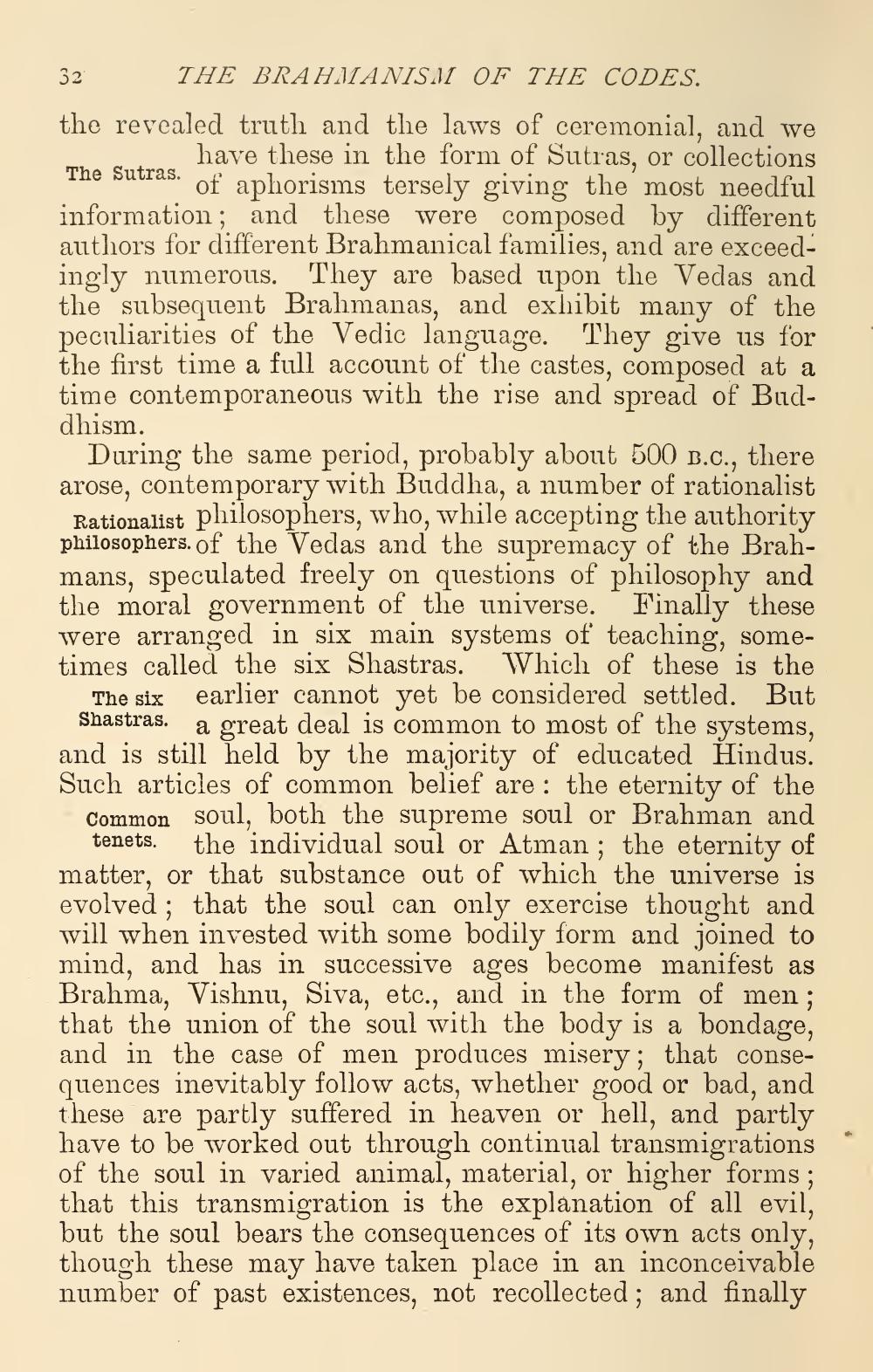________________
32
THE BRAHMANISM OF THE CODES.
the revealed truth and the laws of ceremonial, and we have these in the form of Sutras, or collections The Sutras. of aphorisms tersely giving the most needful information; and these were composed by different authors for different Brahmanical families, and are exceedingly numerous. They are based upon the Vedas and the subsequent Brahmanas, and exhibit many of the peculiarities of the Vedic language. They give us for the first time a full account of the castes, composed at a time contemporaneous with the rise and spread of Buddhism.
During the same period, probably about 500 B.C., there arose, contemporary with Buddha, a number of rationalist Rationalist philosophers, who, while accepting the authority philosophers. of the Vedas and the supremacy of the Brahmans, speculated freely on questions of philosophy and the moral government of the universe. Finally these were arranged in six main systems of teaching, sometimes called the six Shastras. Which of these is the
The six earlier cannot yet be considered settled. But Shastras. a great deal is common to most of the systems, and is still held by the majority of educated Hindus. Such articles of common belief are: the eternity of the Common soul, both the supreme soul or Brahman and tenets. the individual soul or Atman; the eternity of matter, or that substance out of which the universe is evolved; that the soul can only exercise thought and will when invested with some bodily form and joined to mind, and has in successive ages become manifest as Brahma, Vishnu, Siva, etc., and in the form of men; that the union of the soul with the body is a bondage, and in the case of men produces misery; that consequences inevitably follow acts, whether good or bad, and these are partly suffered in heaven or hell, and partly have to be worked out through continual transmigrations of the soul in varied animal, material, or higher forms; that this transmigration is the explanation of all evil, but the soul bears the consequences of its own acts only, though these may have taken place in an inconceivable number of past existences, not recollected; and finally




